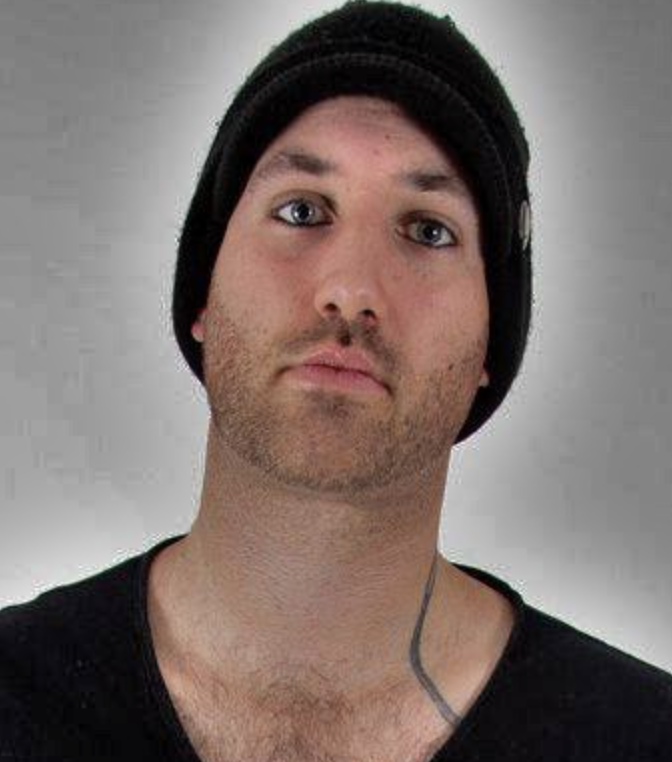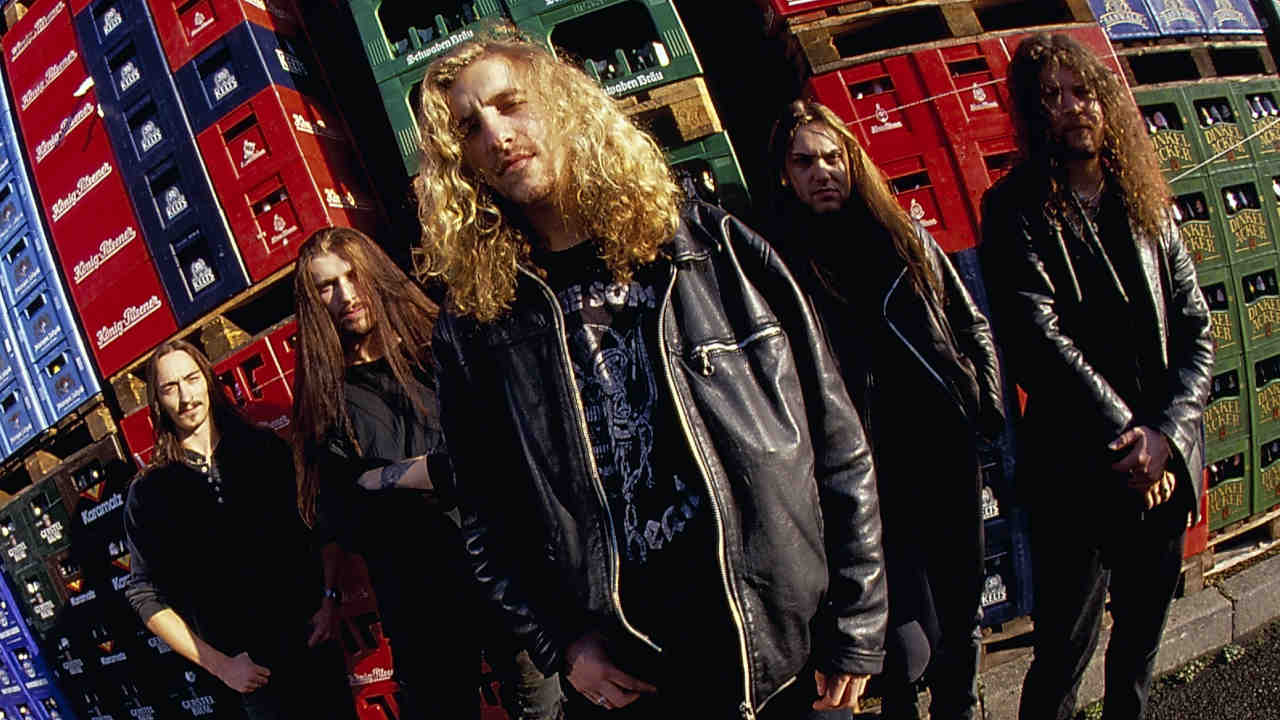“People said, ‘Oh, you’re a metal band’. I thought that was kind of lame”: the story of Tool’s Undertow, the debut album that introduced the world to a new kind of noise
Tool’s debut album was released on April 6, 1993. This is the story behind it

Select the newsletters you’d like to receive. Then, add your email to sign up.
You are now subscribed
Your newsletter sign-up was successful
Want to add more newsletters?

Every Friday
Louder
Louder’s weekly newsletter is jam-packed with the team’s personal highlights from the last seven days, including features, breaking news, reviews and tons of juicy exclusives from the world of alternative music.

Every Friday
Classic Rock
The Classic Rock newsletter is an essential read for the discerning rock fan. Every week we bring you the news, reviews and the very best features and interviews from our extensive archive. Written by rock fans for rock fans.

Every Friday
Metal Hammer
For the last four decades Metal Hammer has been the world’s greatest metal magazine. Created by metalheads for metalheads, ‘Hammer takes you behind the scenes, closer to the action, and nearer to the bands that you love the most.

Every Friday
Prog
The Prog newsletter brings you the very best of Prog Magazine and our website, every Friday. We'll deliver you the very latest news from the Prog universe, informative features and archive material from Prog’s impressive vault.
Thanks to the quality shown on their debut EP, 1992’s Opiate, some well received live performances with the likes of Rage Against the Machine, White Zombie and Rollins Band and frontman Maynard James Keenan’s memorable cameo on RATM’s Know Your Enemy, Tool went into 1993 routinely namechecked as one of the most promising young bands in alternative music. Not that it was a description that they were particularly happy with.
“Look at bands like Pearl Jam,” drummer Danny Carey grumbled at the time. “That’s not alternative. Their songs are just as poppy as anyone else’s.”
Against the backdrop of alternative rock and grunge as the dominant musical force of the time, Tool were determined to create something different and unique when they entered LA’s Grandmaster studio in October 1992 to record their debut full length album, Undertow. The songs they had written were far darker and more unsettling than most alternative rock that was in heavy rotation on the radio and MTV.
“When we did Opiate, we picked all our heaviest songs,” guitarist Adam Jones told the L.A. Times in 1993. “People said, ‘Oh, you’re a metal band’. I thought that was kind of lame. We try and branch off into different directions.”
On Undertow Tool’s exploration of sound, and of themselves, truly began. Keenan cited a deliberate step away from what he called the “totally-male, angst-filled energy” coming from many of Tool’s peers as an important part of its creation.
“As far as the vulnerability element of my approach goes, I listen to Joni Mitchell, so draw your own conclusions,” he told WARP Magazine about his lyrical approach. “Most hard-rock or hard-alternative bands have a very masculine, linear approach, while I think there's more of a feminine balance to our point of view. I think that our softer, more compassionate edge is missed a lot of the time”
Keenan would tackle numerous topics on Undertow from that were largely untouched in metal or hard rock at that time. The haunting, heartbreaking and ultimately controversial Prison Sex tackled domestic abuse and sexual molestation from the perspective of the abused.
Sign up below to get the latest from Metal Hammer, plus exclusive special offers, direct to your inbox!
"This song is about recognizing, identifying, the cycle of abuse within yourself.” he said onstage in Montreal in 1996 when introducing the song.
Unfortunately, it was too complex a subject matter for MTV, who banned the Jones directed, stop-motion animation video clip that accompanied the song, believing the symbolism of child abuse to be too graphic for their audience.
“You have these other videos where [Aerosmith singer] Steven Tyler's daughter is stripping in front of old men, or where Janet Jackson is practically having oral sex,” shrugged Maynard when asked about the banning by the San Francisco Chronicle. “I find that disturbing, yet it's something that's just thrown in people's laps and they don't think twice about it. So, I guess anything that deals with that sort of subject matter is going to end up hitting roadblocks.”
Despite that, Tool proved to be a genuine alternative to the alternative scene. When Undertow was released on April 6 1993, their utterly unique style and approach caught the attention of fans looking for something distinct from the rock and metal scene, making them a cult favourite almost overnight.
Reviews were mainly positive, even though there were a few that lazily mistook the dark, bleak mood of the record for yet another bunch of chancers jumping on the grunge gravy train.
"When the wind blows over and all is said and done, those albums will be able to stand on their own," Maynard said, when asked by the L.A. Times about Undertow’s relation to recent albums by the likes of Soundgarden and Nirvana. “It's all going to come down to writing good songs. I'm hoping we can maintain the focus on the music and have a career… whatever they want to call our style."
Despite MTV’s subsequent resistance to Prison Sex, Undertow’s first single, the bass heavy thud of Sober, became a crossover hit on the network. With another of Jones’ stop-animation videos utterly unlike anything else the channel were airing at that time, it was another element that elevated Tool’s standing in the eyes of fans searching for true musical auteurs. Their rise was accelerated by appearances at Lollapalooza and the UK’s Reading festival in 1993, and the usually metal-unfriendly Glastonbury the following year.
They’ve never looked back as a band but listening back to Undertow more than three decades after its release, it’s incredible to hear how singular it still sounds. Keenan’s voice is an incredible weapon, crooning and bawling his way around the pistoning, jackhammering rhythms of Intolerance and Crawl Away. Jones’ riffs manage to be crushing, spidery and unpredictable and Henry Rollins guest appearance on the tightly wound Bottom is terrifying.
Tool would go on to become bigger, more complex and progressive, but everything you ever loved about them starts on here Undertow.

Stephen joined the Louder team as a co-host of the Metal Hammer Podcast in late 2011, eventually becoming a regular contributor to the magazine. He has since written hundreds of articles for Metal Hammer, Classic Rock and Louder, specialising in punk, hardcore and 90s metal. He also presents the Trve. Cvlt. Pop! podcast with Gaz Jones and makes regular appearances on the Bangers And Most podcast.

